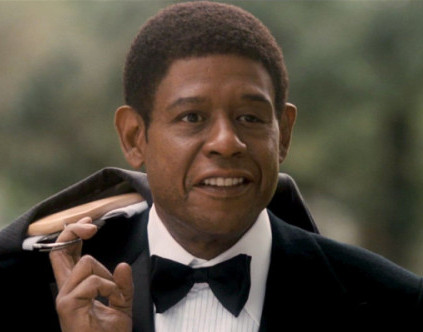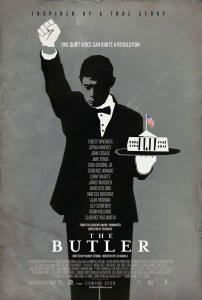
If you are over 65 and spent any time in the old south, the movie “The Butler” by Lee Daniels has a sense of deja vu; some pain at being reminded of how far we have come as a people from slavery and segregation, some joy at the progress made and then some sadness in seeing that at what should be our finest hour (having a Black man as President) is still a time of our greatest sadness. The brutality of the “Jim Crow” sharecropper and segregated south has in too many instances been replaced by failure to appreciate the sacrifices and insults of so many of those who came before us, whether they worked in the fields of the south, white hotels or the White House. Forrest Whitaker as “The Butler” gives a performance worthy of an Academy Award. He quietly takes us on a journey through his life and the life of his family, covering periods of time and experiences that many of us remember, while allowing a younger generation to get a better look at the reality of segregation and the civil rights battles that were fought both in the White House and on the streets. His story reminded me of the real life experiences I had in the south where my grandmother took me out to the fields to pick cotton, not because we had to, but because she wanted me to know what that life was like for so many of our people. The story reminded me of my grandfather who was a “waiter” on the Seaboard Railroad for over 44 years at a time when most Black men could not get a regular job outside of field hands or menial labor. Those who were Butlers and Waiters were really the only ones in our society allowed to wear a white shirt and bow tie to work. Oh, let’s not forget the elevator operator’s job which was only given to Black men in the U.S. House of Representatives in the 1960s’
 The character playing the role of Dr. Martin Luther King, Jr. makes a powerful statement in his conversation with the son of “the Butler” just before his murder in Memphis, Tenn.
The character playing the role of Dr. Martin Luther King, Jr. makes a powerful statement in his conversation with the son of “the Butler” just before his murder in Memphis, Tenn.He says that those who serve in positions like butlers make a powerful statement about the hard work and reliability of Black people that whites (at the time) would not have otherwise seen. The scene repeated several times in the movie where Whitaker goes to the White man in charge of White House staff and requests equal pay and opportunity for the Blacks working in the White House and getting 40 percent less pay, reminded this writer of working in the U.S. House of Representatives at that same period in time and seeing African Americans being paid less than White folks in every position and having no appeal since Civil Service and all the rules of equal pay and opportunity did not exist for Blacks – who were among the very people who made the rules for everyone else, when forced to do so. The movie depicts a life well spent and Oprah Winfrey does an outstanding job of playing a role that does not seek to compete with Whitaker and the story line just because she is who she is. This movie should be seen by all people and African Americans in particular. Oh, how far we have come, but oh, how far we still have to go.

